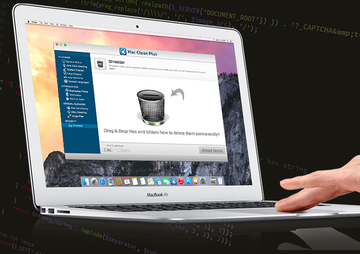Learn why Mac Clean Plus is a potentially unwanted application, what side effects it causes, and how to get rid of this annoying malware quickly and easily.
Mac OS X and installed third-party applications generate a bevy of redundant data when operating. Such superfluous information includes logs, duplicate objects, temporary Internet files, cache and many more entities that cram up the hard disk. Some of these items, such as tracking cookies, pose potential privacy risks. Furthermore, the list of startup apps may contain processes that don’t belong there. Of course it’s possible to do some fine-tuning of a Mac machine and get rid of the garbage manually, but it takes effort and time that not everyone is willing to spend. This is where optimization tools come in handy. They automate the whole process and speed it up considerably. The popularity of these utilities, however, has a flip side. Some unscrupulous software developers distributed rogue programs like Mac Clean Plus, which pretend to perform the cleaning task but in fact do nothing but frustrate users.
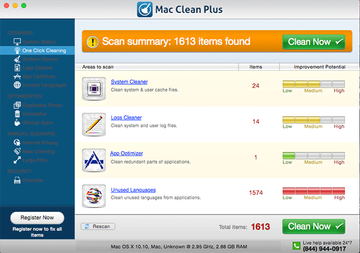
Mac Clean Plus is seldom installed like regular apps. Instead, its distributors employ a cross-promotion mechanism called bundling. Whereas such a tactic is technically legal, the main downside of it is that users hardly ever know what exactly they are installing. For example, a person may be up to getting a new multimedia player, file downloader or some other freeware, but they end up also authorizing the setup of one or several extras. The default installation option of the so-called setup client is configured to pimp additional items. The problem is that some of these drive-by entities may be malicious or simply worthless. The rogue optimizer in question is usually hidden underneath externally innocuous bundles of that sort.
As a result, a user isn’t aware of the hype at first. But it won’t take Mac Clean Plus much time to show its fangs. Once the covert installation has taken place, the program starts displaying deceptive warning notifications. First off, it supposedly runs a scan of the target Mac, pretending to look for unnecessary system logs, unused languages, surplus application data, duplicates, online privacy concerns and the like. Regardless of the machine’s actual health state, the scan will always report hundreds or even thousands of issues. In order to make the false predicament appear more persuasive, Mac Clean Plus displays improvement potential scale next to every scan results area. Some of these graphical indicators will show medium or high potential.
Then, the misleading app won’t fail to offer a fix – the victim is told to click on the Clean Now button to address the purported problems. The cleanup, though, can only begin after registration of the product’s licensed copy, which implies a payment. If the user declines such a defiant offer, the infection will keep on displaying its nag scanning windows and popup alerts. At the end of the day, Mac Clean Plus constantly interrupts normal Mac usage and consumes the machine’s processing resources instead of making them go up as claimed. To wrap up, it’s strongly recommended to uninstall this controversial utility.
Mac Clean Plus manual removal for Mac
The steps listed below will walk you through the removal of this malicious application. Be sure to follow the instructions in the order specified.
• Open up the Utilities folder as shown below
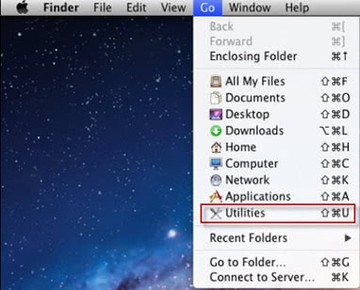
• Locate the Activity Monitor icon on the screen and double-click on it
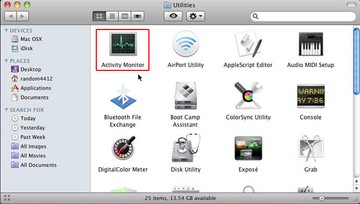
• Under Activity Monitor, find the entry for Mac Clean Plus (or other dubious-looking object), select it and click Quit Process
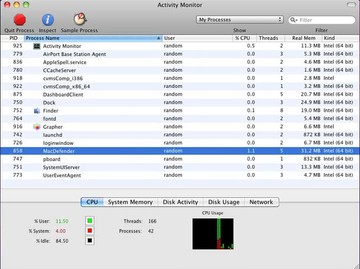
• A dialog should pop up, asking if you are sure you would like to quit the Mac Clean Plus executable. Select the Force Quit option
• Click the Go button again, but this time select Applications on the list. Find the entry for Mac Clean Plus on the interface, right-click on it and select Move to Trash. If user password is required, enter it
• Now go to Apple Menu and pick the System Preferences option
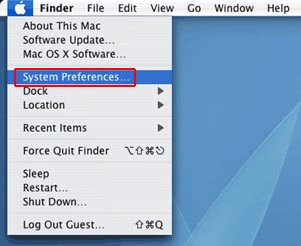
• Select Accounts and click the Login Items button. Mac OS will come up with the list of the items that launch when the box is started up. Locate Mac Clean Plus or other suspicious entry there and click on the “-“ button
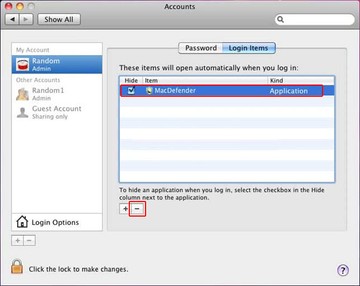
Get rid of Mac Clean Plus virus using Combo Cleaner automatic removal tool
The Mac maintenance and security app called Combo Cleaner is a one-stop tool to detect and remove Mac Clean Plus virus virus. This technique has substantial benefits over manual cleanup, because the utility gets hourly virus definition updates and can accurately spot even the newest Mac infections.
Furthermore, the automatic solution will find the core files of the malware deep down the system structure, which might otherwise be a challenge to locate. Here’s a walkthrough to sort out the Mac Clean Plus virus issue using Combo Cleaner:
Download Combo Cleaner installer. When done, double-click the combocleaner.dmg file and follow the prompts to install the tool onto your Mac.
By downloading any applications recommended on this website you agree to our Terms and Conditions and Privacy Policy. The free scanner checks whether your Mac is infected. To get rid of malware, you need to purchase the Premium version of Combo Cleaner.
Open the app from your Launchpad and let it run an update of the malware signature database to make sure it can identify the latest threats.
Click the Start Combo Scan button to check your Mac for malicious activity as well as performance issues.
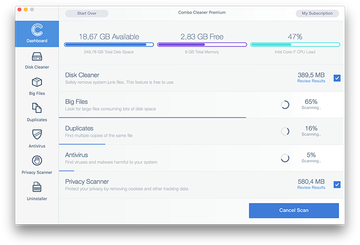
Examine the scan results. If the report says “No Threats”, then you are on the right track with the manual cleaning and can safely proceed to tidy up the web browser that may continue to act up due to the after-effects of the malware attack (see instructions above).
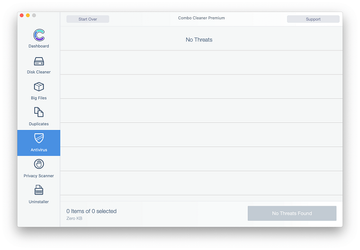
In case Combo Cleaner has detected malicious code, click the Remove Selected Items button and have the utility remove Mac Clean Plus virus threat along with any other viruses, PUPs (potentially unwanted programs), or junk files that don’t belong on your Mac.
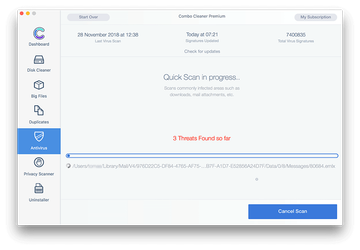
Once you have made doubly sure that the malicious app is uninstalled, the browser-level troubleshooting might still be on your to-do list. If your preferred browser is affected, resort to the previous section of this tutorial to revert to hassle-free web surfing.
